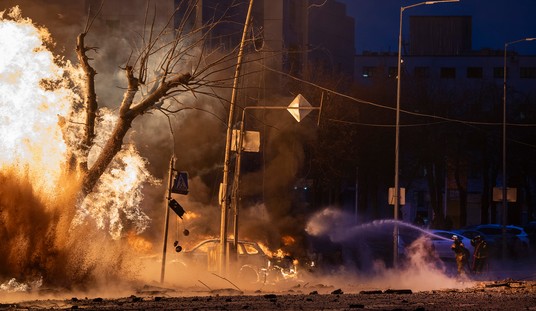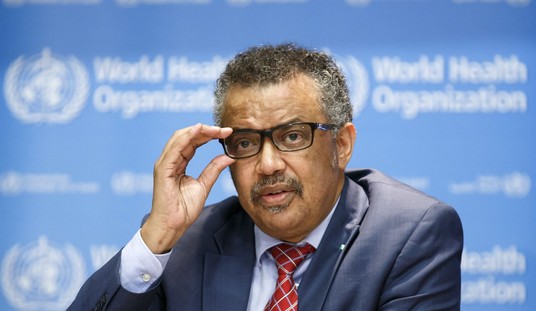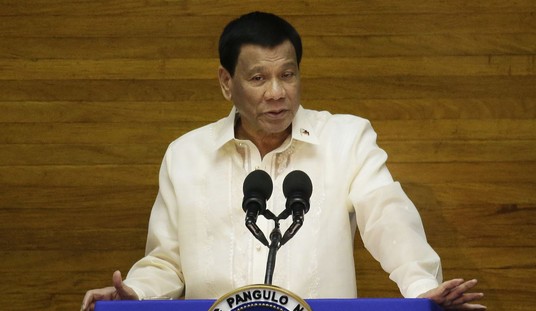Last night, the US State Department closed its consulate in Lahore, Pakistan, and evacuated all but a skeleton crew of personnel to the capital of Islamabad. The embassy there remains open for business, but nineteen others will remain closed at least until tomorrow due to intelligence about a major threat:
The State Department has evacuated most of its diplomats from Lahore, Pakistan in response to a terrorist threat against the U.S. consulate, senior State Department and other senior U.S. officials told CNN.
“We have picked up what we regard as a threat worthy of taking this action,” one senior U.S. official told CNN.
The State Department issued an “ordered departure” for all of its diplomats in Lahore Thursday, except for a handful of emergency personnel. The diplomats were moved to Islamabad, the nation’s capital, officials said.
A travel warning issued by the State Department said the department “ordered this drawdown due to specific threats concerning the U.S. Consulate in Lahore” and warned U.S. citizens against travel to Pakistan.
Is this related to the earlier threat? State doesn’t have enough “granularity” to say:
While one U.S. official said it was not related, a second U.S. official said the connection wasn’t clear.
“We are still digging and trying to trace whether it is related,” the senior U.S. official said about the possible link between the heightened threat against the U.S. in the region and the threat against the consulate in Lahore. “I’m not willing to say it’s related, but can’t say it is unrelated. We just don’t have that level of granularity yet.”
It might be a reaction in part to other activity in Pakistan. The Taliban took credit for assassinating almost half of the top police commanders in Quetta, on the other side of the country from Lahore, in an attack on a funeral. Analysts believe that the attack was more likely carried out by so-called “core” al-Qaeda:
Nearly half the top police commanders in Pakistan’s Baluchistan province were killed Thursday when insurgents shot and killed a police inspector, then bombed his funeral hours later, where most of the province’s police commanders had gathered. At least 30 people were reported dead and 40 wounded.
The attack in Quetta, Baluchistan’s capital, was claimed by Tehrik-i-Taliban Pakistan, the formal name for the Pakistani Taliban. The claim of responsibility called it revenge for a recent crackdown on Lashkar-e-Jhangvi, an al Qaida-linked ally. But militants told McClatchy they thought Lashkar-e-Jhangvi was the more likely suspect because the Pakistani Taliban lacked the local resources to launch any such an operation in Quetta.
Needless to say, this hardly paints a picture of a terrorist group “on the run,” as the Obama administration has insisted for the last two years. The White House tried to spin that by claiming that the resurgent elements of al-Qaeda are “affiliates” — as if that makes any difference in terms of national security anyway — but McClatchy calls that nonsense in its analysis today:
The rise in prominence of Nasir al Wuhayshi, the Yemeni head of al Qaida in the Arabian Peninsula, underscores the transformation of al Qaida from a relatively small group led by one charismatic man into a diffuse global organization with many branches that pursue local objectives but follow a single ideology, according to counterterrorism analysts and officials.
The change has undermined the Obama administration’s boast that U.S. drone strikes in Pakistan have “decimated” what’s been called core al Qaida, according to veteran al Qaida watchers. Instead, the organization, no longer dependent on the leadership of a single personality, is growing, with authority now spread among leaders not just in Yemen but also in Iraq, Somalia, Syria and Egypt’s Sinai. The branches that operate in those regions aren’t affiliates, the experts say, they’re al Qaida.
The experts are still uncertain how the various leaders of al Qaida interact with one another, and there are signs that Ayman al Zawahiri, the Egyptian doctor who was named to lead al Qaida after U.S. special forces shot and killed Osama bin Laden in May 2011, still holds special influence.
But experts say it’s no longer accurate to talk about a core al Qaida that’s in charge of groups operating in the Arabian Peninsula, North Africa, Iraq and Syria.
Besides, if there is such a thing as “core” al-Qaeda, Lahore is where you’d be most likely to find it, outside of Waziristan. If we’re on the run from Lahore, it’s not an al-Qaeda “affiliate” that’s the issue.








Join the conversation as a VIP Member